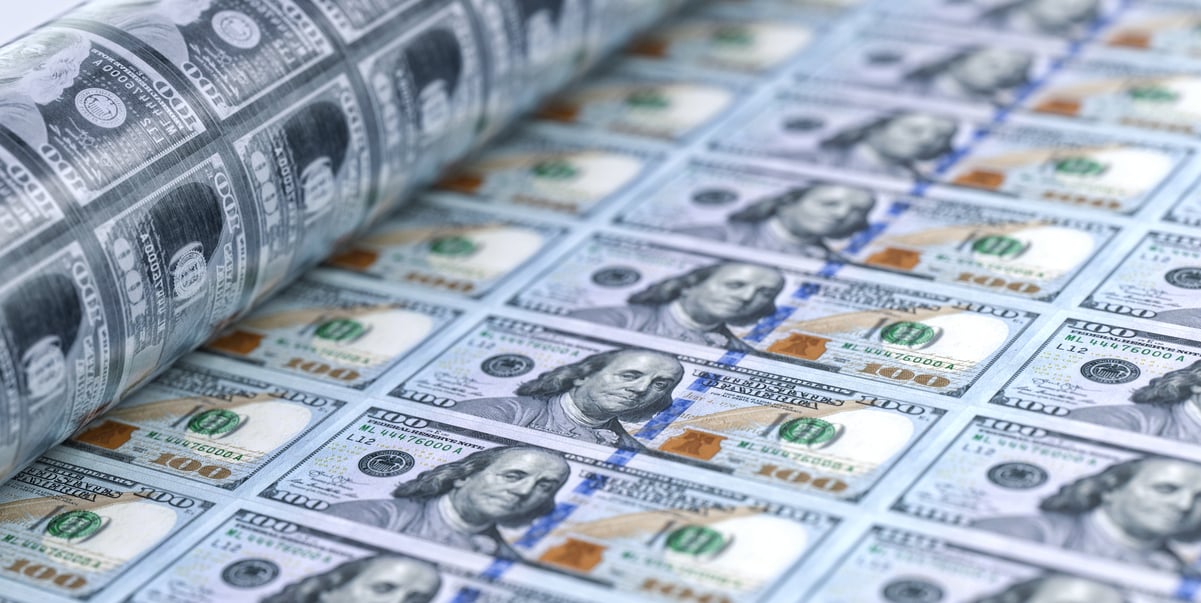There's no question the United States has an obesity problem. Volumes could be written theorizing who exactly is at fault for this problem. But it appears that makers of carbonated soft drinks, or CSD -- "soda," "pop," or "coke," depending on where you live -- are feeling the heat for the perceived role they play.
Coca-Cola (KO +0.72%) is taking to print media to convince consumers the company's products are healthier than perceived. As you'll see below, all CSD companies have reason to worry, and there's some question as to how effective Coke's latest campaign will be.

Source: Marlith, via Wikimedia Commons.
A growing trend
Beverage Digest, a leading industry tracker, says that consumption of CSDs in North America has been falling for quite some time now. After experiencing decades of growth in volume consumption, soda makers began seeing a reversal of fortunes in 2005. Between 2010 and 2012 alone, CSD consumption fell 3.7% per capita.
Because of their high caloric content, standard, non-diet sodas have seen declines. In 2012, the volume of regular Coke purchased was down 1%, and PepsiCo's (PEP +1.02%) signature Pepsi saw a 3.4% decline. Bucking the trend was Dr Pepper Snapple's (DPS +0.00%) largest brand -- Dr Pepper -- which saw its volume grow 0.3%.
What's surprising, however, is that the diet brands of each of these products have seen even steeper declines. Diet Coke volumes were down 3% last year, Diet Dr Pepper was down 2%, and Diet Pepsi was down a whopping 6.2%.
At first blush, these trends seem counterintuitive. If obesity is the major concern, one would expect to find steeper declines in regular soda brands -- given that diet sodas usually have zero calories. One possible explanation is that diet soda drinkers are a more health-conscious group, and that concerns over the safety of artificial sweeteners have caused the decline.
Enter Coke's advertising play
Starting this week, Coke will be running print ads in Atlanta area editions of USA Today, in the Atlanta Journal Constitution, and in the Chicago Tribune to persuade consumers that aspartame -- an artificial sweetener -- is safe for consumption.
Indeed, the American Cancer Society -- on its website -- makes clear that aspartame is relatively safe for consumption. It would take roughly 21 cans of soda per day to go over the recommended level of aspartame consumption. The group also states that no conclusive studies in lab animals have shown aspartame to be a known carcinogen, and studies on humans have shown no conclusive link between aspartame consumption and cancer rates.
These findings, however, don't convince everyone. Some claim that long-term consumption of aspartame is linked to birth defects, brain cancer, diabetes, emotional disorders, and seizures. The concerns, though, have not been supported by the leading regulatory agencies.
A more nuanced criticism of aspartame is that it induces sugar cravings -- thereby negating the benefits of ingesting sugar-free diet drinks. A paper published in the Yale Journal of Biology and Medicine reviewing the body of research on artificial sweeteners found that "Increasing evidence suggests that artificial sweeteners do not activate the food reward pathways in the same fashion as natural sweeteners."
What this means for consumers is that ingesting artificial sweeteners might actually hook us on unhealthy habits. Specifically, the Yale study stated, "artificial sweeteners, precisely because they are sweet, encourage sugar craving and sugar dependence."
What this means for investors
While a cursory review of the scientific evidence suggests that any links between cancer and aspartame are anecdotal at best, there are valid concerns that the products do little to help the obesity epidemic.
Though Coke, Pepsi, and Dr Pepper Snapple have product lines that go beyond CSDs, these products still represent an large part of each company's revenue, and it's important that investors monitor how health concerns could affect the companies.







